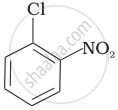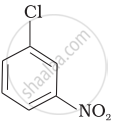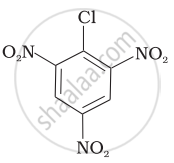Advertisements
Advertisements
प्रश्न
Haloarenes are less reactive than haloalkanes and haloalkenes. Explain.
उत्तर
In haloarenes, the electron pairs on halogen atom are in conjugation with π-electrons of the ring.

C-Cl bond acquires a partial double bond character due to resonance. As a result, the bond cleavage in haloarene is difficult than haloalkane and therefore, they are less reactive towards nucleophilic substitution reaction.
APPEARS IN
संबंधित प्रश्न
What happens when \[\ce{CH3 - Br}\] is treated with KCN?
Write the final product(s) in each of the following reactions:

How the following conversion can be carried out?
Chlorobenzene to p-nitrophenol
Give reasons:
The dipole moment of chlorobenzene is lower than that of cyclohexyl chloride.
Write the product formed on reaction of D-glucose with Br2 water.
Out of (CH3)3 C-Br and (CH3)3 C-I, which one is more reactive towards SN1 and why?
Assertion: Presence of a nitro group at ortho or para position increases the reactivity of haloarenes towards nucleophilic substitution.
Reason: Nitro group, being an electron-withdrawing group decreases the electron density over the benzene ring.
Arrange the following compounds in increasing order of rate of reaction towards nucleophilic substitution.
| (a) |  |
| (b) |  |
| (c) |  |
Arrange the following compounds in increasing order of rate of reaction towards nucleophilic substitution.
| (a) |  |
| (b) |  |
| (c) |  |
Why haloarenes are not reactive towards nucleophilic substitution reaction? Give two reactions.
